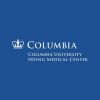The Impact of High Blood Pressure on Heart Disease: A Closer Look
- Understanding High Blood Pressure (Hypertension)
- How High Blood Pressure Affects the Heart
- Real Life Story: My Personal Journey with Hypertension
- How to Prevent Heart Disease and Manage High Blood Pressure
- Take Action: Protect Your Heart Health Today
Understanding High Blood Pressure (Hypertension)
High blood pressure, also known as hypertension, is often called the “silent killer” because it has no obvious symptoms, yet it poses serious risks to your heart health. I remember when I first learned that I had high blood pressure—it came as a shock. I had no signs or symptoms, but a routine check-up revealed numbers that were dangerously high. Hypertension occurs when the force of the blood against the walls of your arteries is consistently too high, putting strain on your heart and other vital organs. Over time, this strain can cause irreversible damage, particularly to the heart. This is where the connection between high blood pressure and heart disease becomes critical.

How High Blood Pressure Affects the Heart
The effects of high blood pressure on the heart are far-reaching. When your blood pressure is high, the heart has to work harder to pump blood throughout your body. This extra strain can lead to a number of complications, including:
- Enlargement of the Heart: High blood pressure can cause the heart’s chambers to enlarge, particularly the left ventricle. This can affect the heart’s ability to pump blood efficiently, leading to heart failure.
- Coronary Artery Disease: Hypertension accelerates the buildup of plaque in the arteries, a condition known as atherosclerosis. This can narrow the arteries and limit blood flow to the heart, increasing the risk of heart attack.
- Heart Attack: The continuous strain on the heart’s blood vessels and arteries increases the risk of a heart attack. If a blood vessel becomes blocked due to the damage caused by hypertension, the flow of oxygen and nutrients to the heart is cut off, causing a heart attack.
- Arrhythmia: High blood pressure can also cause irregular heart rhythms, known as arrhythmias, which can further compromise heart health and lead to complications like stroke.
Real Life Story: My Personal Journey with Hypertension
Let me share a personal story to illustrate just how impactful hypertension can be on heart health. Several years ago, I was diagnosed with high blood pressure during a routine check-up. At first, I didn’t think much of it because I felt fine. But after speaking with my doctor, I learned that even though I wasn’t feeling the effects, my high blood pressure was already starting to impact my heart.
My doctor explained that uncontrolled hypertension could lead to serious heart complications, including heart disease. This was a wake-up call for me. I began taking steps to lower my blood pressure and protect my heart health. I changed my diet, started exercising regularly, and took medication as prescribed. Over time, my blood pressure improved, and my risk for heart disease decreased. However, it was a reminder that high blood pressure doesn’t just affect your arteries—it can take a serious toll on your heart if left untreated.
Atlanta Heart Specialists
atlanta heart specialists
4375 Johns Creek Pkwy #350, Suwanee, GA 30024, USA

How to Prevent Heart Disease and Manage High Blood Pressure
The good news is that you can take control of your heart health by managing your blood pressure. I’ve learned several effective strategies that can help prevent heart disease while lowering high blood pressure:
- Healthy Diet: Eating a heart-healthy diet rich in fruits, vegetables, whole grains, and lean proteins can help lower your blood pressure. I found that cutting back on salt and processed foods was one of the most effective ways to improve my blood pressure.
- Regular Exercise: Engaging in regular physical activity, such as walking, swimming, or cycling, can help lower blood pressure and improve heart health. I made exercise a regular part of my routine, and it made a significant difference in how I felt and my blood pressure levels.
- Stress Management: Chronic stress is a known contributor to high blood pressure. Finding ways to manage stress, such as through meditation, yoga, or deep breathing exercises, can reduce the strain on your heart.
- Medication: For some people, lifestyle changes alone aren’t enough to control high blood pressure. In these cases, doctors may prescribe medication to help manage blood pressure levels. If your doctor recommends this, it’s important to follow their advice and take medication as directed.
Take Action: Protect Your Heart Health Today
If you’re dealing with high blood pressure or are at risk for hypertension, don’t wait until it’s too late. The connection between high blood pressure and heart disease is well-established, and taking action now can help protect your heart in the future. Start by monitoring your blood pressure regularly, adopting a healthier lifestyle, and consulting with a healthcare provider about your risk.
It’s never too late to start improving your heart health. Whether you’re looking for a way to manage high blood pressure or prevent heart disease, the key is being proactive. Your heart is one of your most vital organs, and by taking steps now, you can enjoy a long, healthy life free from the complications of hypertension and heart disease. So, take the first step today—your heart will thank you!





















Deborah Heart and Lung Center
deborah heart and lung center
200 Trenton Rd, Browns Mills, NJ 08015, USA